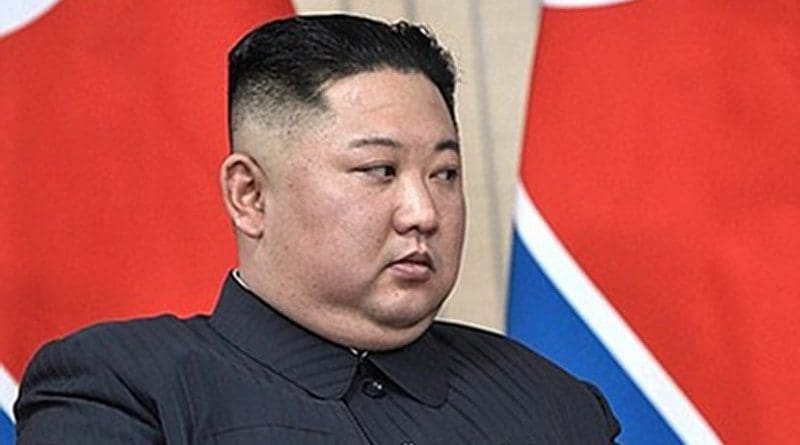Public Executions Haunt North Koreans – OpEd
By UCA News
By Luke Hunt*
Too often the death penalty in North Korea makes for macabre reading. With imagination and lurid flair, state-sanctioned killings have been used by three generations of one-family dictators to instill a perverse fear, ensure control of a browbeaten people and maintain power.
Current leader Kim Jong-un has continued the traditions established by his father and grandfather. He executed one uncle and apparently fed his body to a pack of wild dogs and later had his half-brother assassinated with a nerve agent at a Malaysian airport.
Despite these actions, United States President Donald Trump decided Kim was a fit and proper leader to meet. After all, the greater need was nuclear disarmament of the Korean Peninsula.
It’s a diplomatic track well trodden by previous presidents, with North Korean leaders moderating their behavior and inspiring hope until talks inevitably fall apart and the grim hallmarks of the notorious Hermit Kingdom return.
As Trump’s talks faltered, Kim decided to crack down. His first targets were fortune tellers, which is not that surprising given the importance of luck in a society where survival is arbitrarily controlled by the Kim clan.
Two female fortune tellers from a collective known as the Seven Star Group — who claimed two children could channel spirits — were put to death by firing squad following a swift trial in March, with tens of thousands of people forced to watch. It signaled a return to public executions.
Then Kim ordered the executions of four foreign ministry officials after his Hanoi summit with Trump was derided as a failure with no deals being struck. The four were charged with selling state secrets to Washington.
Whimsical reporting from the Hermit Kingdom
Gleaning this type of information from North Korea is not easy. Sources are tricky, but Radio Free Asia (RFA) and Japanese news agencies like Jiji Press are insightful. Then there’s the Korean Central News Agency (KCNA), a wire service dedicated to the Kims.
KCNA tells a different story, once boasting that the current leader’s father, Kim Jong-il, would assert its editorial policies after he was named an honorary professor and “Master of Journalists” with Guayaquil University of Ecuador.
KCNA then reported that Mother Nature had celebrated Kim Jong-il’s bid for absolute power. Cherry blossoms bloomed out of season, a pear tree sprouted 400 buds and five 10-year-old apricot trees bore fruit, all during a rather nasty famine.
Also known as Dear Leader, his ascendancy was timed to coincide with the third anniversary of the death of his father, The Great Leader, Kim Il-sung.
KCNA scribes were on hand when a wagtail commemorated his passing by perching on the recently built Immortality Tower where the upset bird “sat and cried.” An equally distressed owl made the same pilgrimage.
Then, as the results of Dear Leader’s emphatic victory in North Korea’s “elections” became known, a fisherman caught a 10-centimeter white sea cucumber in the waters off Chongjin.
“They said the rare white cucumber has come to hail the auspicious event of electing Comrade Kim Jong-il as party general secretary,” the KCNA dispatch said.
North Korean realities
Such whimsical reportage underscores the fantasy of North Korea and a mentality that fears fortune tellers as much as its own diplomats, entrusted to find peace with the South and in the West.
The two women were executed in a bid to curb superstitious behavior among officials patronizing fortune tellers, with one source telling RFA: “Public trials and executions have resumed this year, with judicial authorities holding these trials in multiple locations for reasons of maintaining social order.”
The source said the public executions had shocked city residents. “Tens of thousands of people from factories, colleges and housing units from Chongjin were forced to attend the public trial.”
A third fortune teller was jailed for life in a system described by former International Criminal Court judge Thomas Buergenthal, a child survivor of Auschwitz, as being at least “as terrible or even worse” than what he had witnessed in Nazi death camps.
The latest round of executions in the diplomatic community should make Trump think twice. Two years ago, Buergenthal worked on a report by the War Crimes Committee of the International Bar Association that had compiled grisly testimony from prison camp survivors and guards.
This led to calls — which fell on deaf ears — for the international community to investigate North Korea for crimes against humanity. Trump, instead, sought to strike a deal.
Former U.S. presidents Barack Obama and Bill Clinton adopted a similar amoral stance with North Korean leaders, while George W. Bush was vilified for citing North Korea as part of an axis of evil alongside Iraq and Iran.
It was a propaganda campaign that failed miserably because there was no axis of evil, but the evidence for Pyongyang’s inclusion, based on its clandestine production of nuclear bombs, was correct and Bush’s refusal to deal with a Kim regime was justified.
Trump should be wary of a leader whose arbitrary enthusiasm for the death penalty is boundless, as North Korea’s former defense minister Hyon Yong-chol discovered. Caught dozing off during a political rally, he was executed with anti-aircraft cannon fire.
*Luke Hunt is a senior opinion columnist for ucanews.com. Twitter: @lukeanthonyhunt

